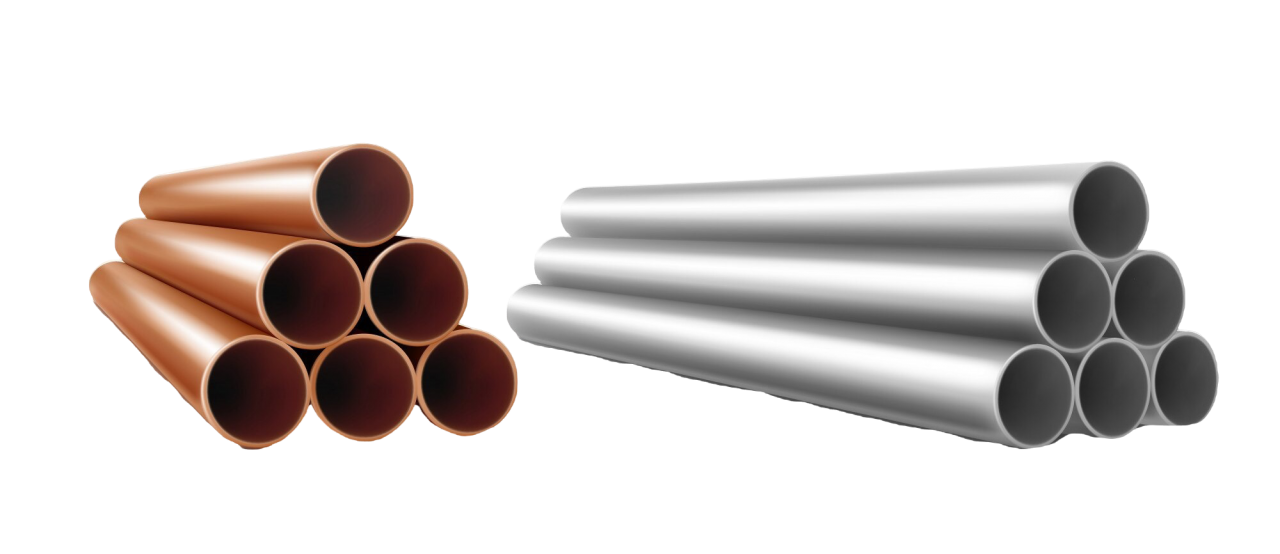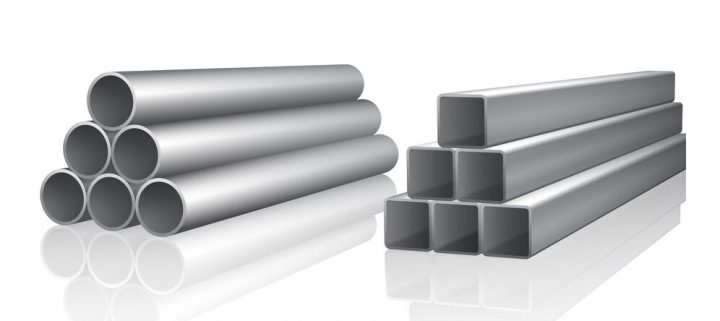Steel tubes are an integral part of various industries worldwide, from construction and automotive to energy and infrastructure. In recent years, India has emerged as a significant player in the steel tubes manufacturing sector, driven by strong demand, innovative practices, and government support. As the industry continues to evolve, new trends and innovations are shaping its growth trajectory. In this blog, we’ll explore the factors propelling the rise of steel tube manufacturers in India, the key industry trends, and how these innovations are setting the stage for global competitiveness.
The Growth of Steel Tubes Manufacturing in India
India’s steel industry, one of the largest in the world, has seen remarkable growth over the past decade. With the country’s economic development and infrastructural expansion, steel tube manufacturing has gained momentum, driven by the need for durable, high-quality materials in various applications. Several factors have contributed to this rise:
- Economic and Industrial Expansion: The booming economy, coupled with large-scale industrial projects, has driven the demand for steel tubes. The construction sector, one of the primary consumers of steel tubes, has expanded significantly in India.
- Government Initiatives and Policy Support: The Indian government has launched several initiatives to encourage domestic manufacturing and reduce dependency on imports. Programs such as “Make in India” have incentivized local manufacturers, and strategic investments in steel production have bolstered the industry.
- Increased Exports: Indian steel tube manufacturers are increasingly competing on the global stage, with products now exported to countries worldwide. This expansion is supported by competitive pricing, high-quality production standards, and adherence to international certifications, which have helped Indian manufacturers gain credibility abroad.
- Growing Demand from Emerging Sectors: Industries like renewable energy, urban infrastructure, and automotive manufacturing have grown rapidly in India, creating increased demand for steel tubes. For example, steel tubes are essential in building solar farms, wind turbines, and lightweight vehicles.
Innovations in Steel Tubes Manufacturing
Indian steel tube manufacturers are embracing several technological innovations to improve product quality, optimize processes, and stay competitive. Here are some of the key innovations transforming the industry:
1. Advanced Metallurgy and Alloys
Manufacturers are constantly experimenting with new alloys to enhance the properties of steel tubes, including corrosion resistance, tensile strength, and flexibility. By developing custom alloys, manufacturers can cater to niche applications in sectors like marine engineering, petrochemicals, and construction, where specific performance criteria are essential.
2. Cold-Forming Technology
Cold-forming technology, a process where steel tubes are shaped without the need for heat, is gaining traction among manufacturers. This technology not only reduces energy consumption but also produces steel tubes with higher strength, better dimensional accuracy, and smoother finishes. Cold-formed steel tubes are used extensively in automotive applications where precision and lightweight materials are prioritized.
3. Automation and Robotics
Automation and robotics have revolutionized production lines across the steel manufacturing sector, and steel tubes manufacturing is no exception. Automated processes reduce the margin of error and ensure consistent quality across batches. Robotics is also used for welding, cutting, and packaging, increasing the overall efficiency and safety of production.
4. Quality Control with AI and Machine Learning
Artificial intelligence (AI) and machine learning (ML) technologies are now being integrated into quality control processes. Using AI-driven inspection systems, manufacturers can detect flaws or inconsistencies in steel tubes with high accuracy. Machine learning algorithms help predict defects by analyzing data collected from previous batches, which allows manufacturers to proactively address issues before they arise.
5. 3D Printing for Rapid Prototyping
While 3D printing of metals is still in its nascent stage, it has promising applications for rapid prototyping in steel tube manufacturing. Manufacturers use 3D printing to create prototypes, test new designs, and optimize tube shapes for better performance. This technology saves time and resources during the research and development phase, accelerating the path from concept to production.
Emerging Trends in the Steel Tubes Industry
With the Indian steel tube manufacturing industry on the rise, several trends are shaping its evolution:
1. Focus on Sustainability
Environmental sustainability has become a priority for Indian manufacturers. Many steel tube producers are investing in eco-friendly processes, such as reducing waste, conserving energy, and recycling. Steel is inherently a recyclable material, and by implementing circular production models, manufacturers are working toward minimizing the industry’s environmental footprint.
2. Customization and Niche Production
As global markets demand more specialized products, Indian manufacturers are offering customized steel tube solutions. Customization allows them to cater to specific industry needs, such as heat-resistant tubes for petrochemical applications or corrosion-resistant tubes for marine environments. By offering niche products, Indian manufacturers can tap into higher-value markets.
3. Adoption of Industry 4.0
Industry 4.0, the latest industrial revolution, integrates digital technology, IoT (Internet of Things), and data analytics into manufacturing processes. Indian steel tube manufacturers are increasingly adopting Industry 4.0 practices, such as using sensors to monitor equipment performance, data analytics for predictive maintenance, and digital twins for real-time process simulation.
4. Increased Investment in R&D
To stay competitive on a global scale, Indian manufacturers are investing heavily in research and development (R&D). This investment enables them to create innovative products, improve existing materials, and explore new applications for steel tubes. With R&D, manufacturers can respond to market trends faster and establish a reputation as leaders in innovation.
5. Collaborations and Strategic Partnerships
Strategic collaborations with global players, technology providers, and research institutions have become a trend among Indian manufacturers. These partnerships facilitate knowledge exchange, provide access to advanced technologies, and enable Indian manufacturers to meet international quality standards. Collaborations also help in securing contracts from multinational corporations, especially for large infrastructure projects.
Challenges Facing Steel Tubes Manufacturers in India
While the industry is growing rapidly, steel tube manufacturers in India face several challenges that could affect their long-term sustainability:
1. Raw Material Fluctuations
The prices of raw materials, such as iron ore and coking coal, are volatile and heavily impacted by global supply-demand dynamics. These fluctuations create uncertainties in pricing and affect profitability, especially for small and medium-sized manufacturers who have limited resources to absorb price hikes.
2. Competition from Low-Cost Producers
Indian manufacturers face stiff competition from low-cost steel tube producers, particularly from countries like China. To stay competitive, Indian manufacturers must focus on quality and innovation, differentiating themselves from low-cost competitors through specialized products and exceptional quality.
3. Regulatory and Environmental Compliance
Strict regulatory requirements and environmental standards require manufacturers to continually invest in sustainable practices, waste management, and emission control technologies. Compliance with these regulations, while essential, can be costly and time-consuming.
4. Skilled Workforce Shortages
As automation and digital technology become more prominent in steel tube manufacturing, the demand for a skilled workforce has grown. However, there is a shortage of workers trained in advanced manufacturing technologies, and companies often have to invest in upskilling and training their existing workforce.
See Also Leading Stainless Steel Pipe Manufacturers in India: A Comprehensive Overview
The Future of Steel Tubes Manufacturing in India
Despite challenges, the future of steel tube manufacturing in India looks promising. Government initiatives, combined with industry innovations and a focus on sustainability, are expected to propel the sector’s growth in the coming years. Indian manufacturers are likely to increase their global footprint and play a more significant role in the international steel tubes market.
Emerging sectors like renewable energy and electric vehicles will likely boost demand for specialized steel tubes, creating new opportunities for manufacturers to expand into high-value markets. Moreover, the continued focus on digital transformation and Industry 4.0 adoption will allow Indian steel tube manufacturers to increase efficiency and reduce production costs, further enhancing their competitiveness.
Conclusion
India’s steel tubes manufacturing sector is on a growth trajectory driven by innovation, industry trends, and a commitment to sustainability. With investments in advanced technologies like automation, AI, and 3D printing, Indian manufacturers are setting new benchmarks for quality and efficiency in the industry. The rise of Industry 4.0, the push toward eco-friendly practices, and increased demand from various sectors have transformed the landscape, positioning India as a key player in the global steel tubes market.
For those seeking reliable suppliers in India and worldwide, Enggpro offers a robust platform to connect with top pipe and tube manufacturers and suppliers. Enggpro’s comprehensive listings provide access to detailed profiles, certifications, and capabilities of suppliers, making it easier to find the right partner for specific requirements. Features like verified supplier credentials, competitive pricing options, and global accessibility make Enggpro a valuable resource for businesses looking to source high-quality steel tubes.
In conclusion, the steel tubes manufacturing industry in India is evolving rapidly, embracing technology and sustainability while expanding its reach across international markets. Enggpro’s platform brings the best of Indian and global suppliers to your fingertips, ensuring you can access top-tier products and services to meet your unique project needs. Whether you are in construction, automotive, or industrial manufacturing, Enggpro connects you with leading steel tube manufacturers and suppliers dedicated to excellence.



